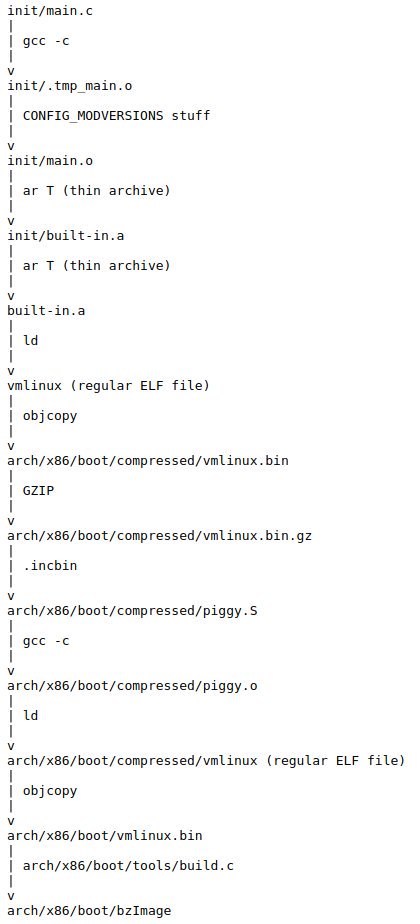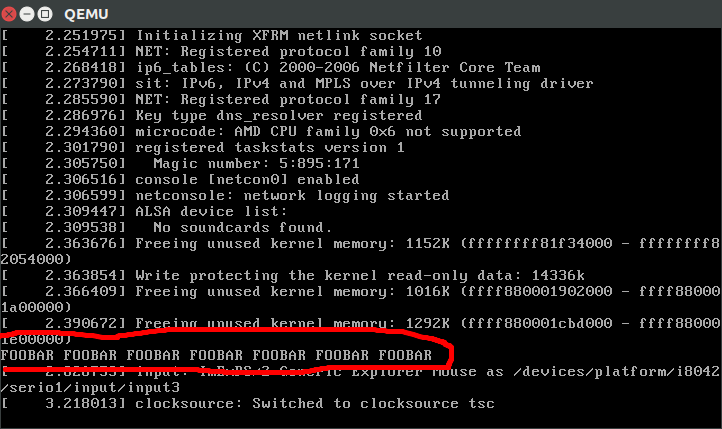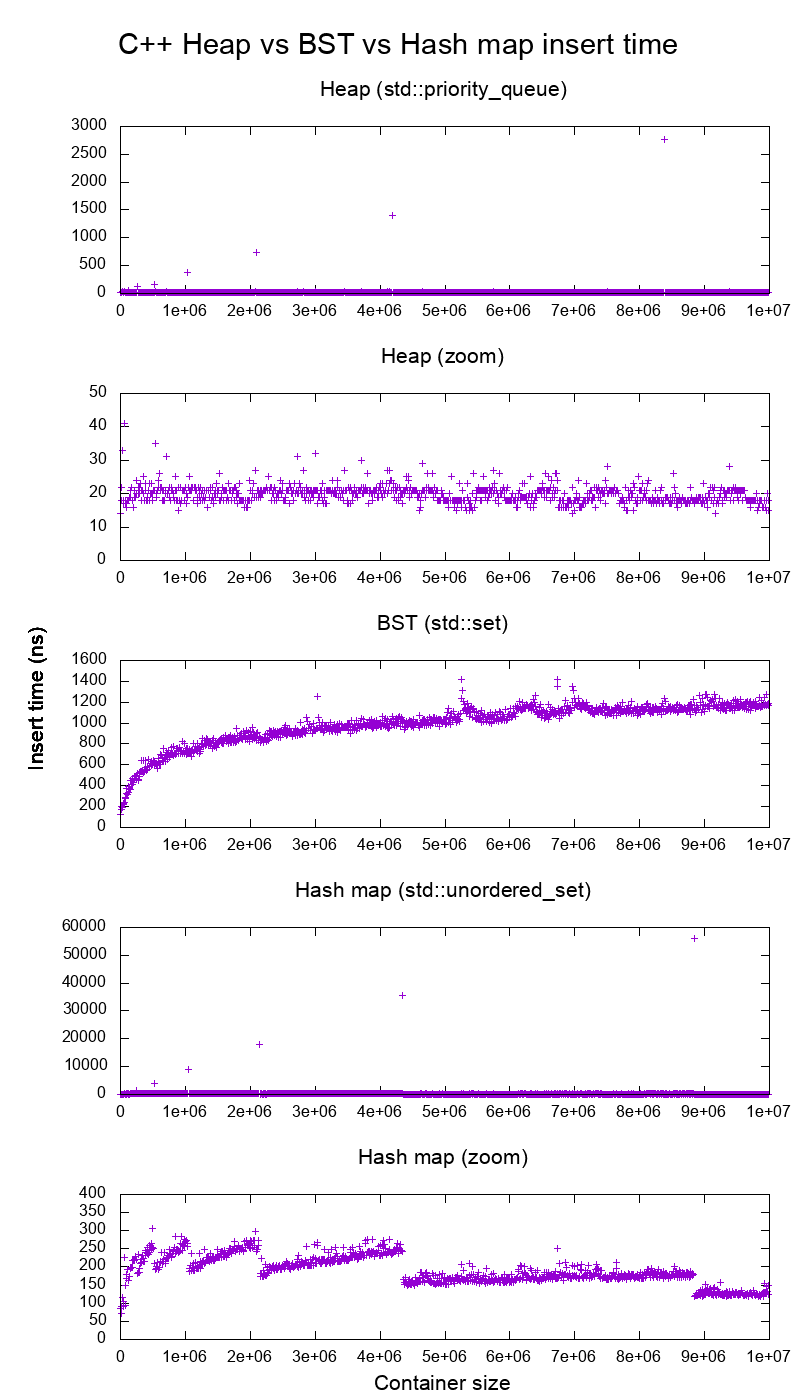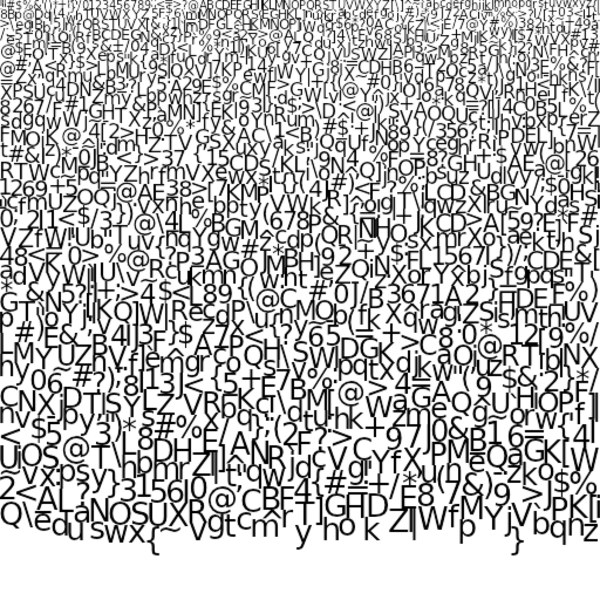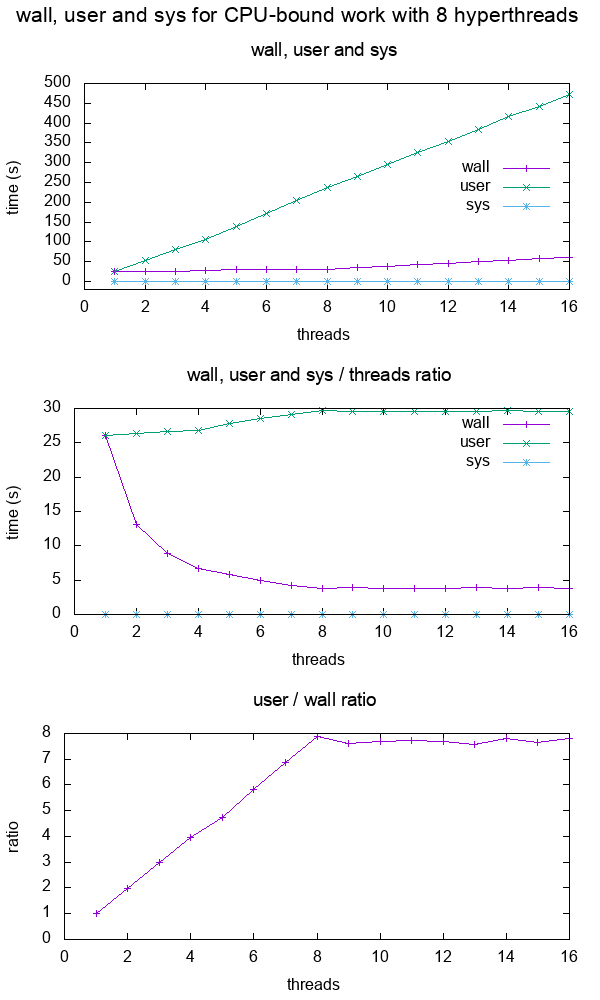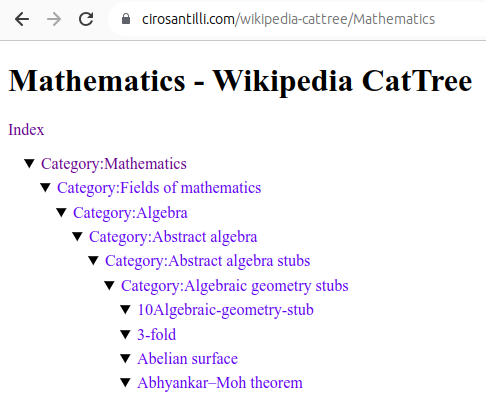Spectral line Updated 2025-07-16
A single line in the emission spectrum.
Has been the leading motivation of the development of quantum mechanics, all the way from the:
- Schrödinger equation: major lines predicted, including Zeeman effect, but not finer line splits like fine structure
- Dirac equation: explains fine structure 2p spin split due to electron spin/orbit interactions, but not Lamb shift
- quantum electrodynamics: explains Lamb shift
- hyperfine structure: due to electron/nucleus spin interactions, offers a window into nuclear spin
Applications of the Fourier series Updated 2025-07-16
How to value startup shares Updated 2025-07-16
Busy beaver scale Updated 2025-07-16
The Busy beaver scale allows us to gauge the difficulty of proving certain (yet unproven!) mathematical conjectures!
To to this, people have reduced certain mathematical problems to deciding the halting problem of a specific Turing machine.
A good example is perhaps the Goldbach's conjecture. We just make a Turing machine that successively checks for each even number of it is a sum of two primes by naively looping down and trying every possible pair. Let the machine halt if the check fails. So this machine halts iff the Goldbach's conjecture is false! See also Conjecture reduction to a halting problem.
Therefore, if we were able to compute , we would be able to prove those conjectures automatically, by letting the machine run up to , and if it hadn't halted by then, we would know that it would never halt.
Of course, in practice, is generally uncomputable, so we will never know it. And furthermore, even if it were computable, it would take a lot longer than the age of the universe to compute any of it, so it would be useless.
However, philosophically speaking at least, the number of states of the equivalent Turing machine gives us a philosophical idea of the complexity of the problem.
The busy beaver scale is likely mostly useless, since we are able to prove that many non-trivial Turing machines do halt, often by reducing problems to simpler known cases. But still, it is cute.
But maybe, just maybe, reduction to Turing machine form could be useful. E.g. The Busy Beaver Challenge and other attempts to solve BB(5) have come up with large number of automated (usually parametrized up to a certain threshold) Turing machine decider programs that automatically determine if certain (often large numbers of) Turing machines run forever.
So it it not impossible that after some reduction to a standard Turing machine form, some conjecture just gets automatically brute-forced by one of the deciders, this is a path to
The best articles by Ciro Santilli Updated 2025-07-16
These are the best articles ever authored by Ciro Santilli, most of them in the format of Stack Overflow answers.
Ciro posts update about new articles on his Twitter accounts.
Some random generally less technical in-tree essays will be present at: Section "Essays by Ciro Santilli".
- Trended on Hacker News:
- CIA 2010 covert communication websites on 2023-06-11. 190 points, a mild success.
- x86 Bare Metal Examples on 2019-03-19. 513 points. The third time something related to that repo trends. Hacker news people really like that repo!
- again 2020-06-27 (archive). 200 points, repository traffic jumped from 25 daily unique visitors to 4.6k unique visitors on the day
- How to run a program without an operating system? on 2018-11-26 (archive). 394 points. Covers x86 and ARM
- ELF Hello World Tutorial on 2017-05-17 (archive). 334 points.
- x86 Paging Tutorial on 2017-03-02. Number 1 Google search result for "x86 Paging" in 2017-08. 142 points.
- x86 assembly
- What does "multicore" assembly language look like?
- What is the function of the push / pop instructions used on registers in x86 assembly? Going down to memory spills, register allocation and graph coloring.
- Linux kernel
- What do the flags in /proc/cpuinfo mean?
- How does kernel get an executable binary file running under linux?
- How to debug the Linux kernel with GDB and QEMU?
- Can the sys_execve() system call in the Linux kernel receive both absolute or relative paths?
- What is the difference between the kernel space and the user space?
- Is there any API for determining the physical address from virtual address in Linux?
- Why do people write the
#!/usr/bin/envpython shebang on the first line of a Python script? - How to solve "Kernel Panic - not syncing: VFS: Unable to mount root fs on unknown-block(0,0)"?
- Single program Linux distro
- QEMU
- gcc and Binutils:
- How do linkers and address relocation works?
- What is incremental linking or partial linking?
- GOLD (
-fuse-ld=gold) linker vs the traditional GNU ld and LLVM ldd - What is the -fPIE option for position-independent executables in GCC and ld? Concrete examples by running program through GDB twice, and an assembly hello world with absolute vs PC relative load.
- How many GCC optimization levels are there?
- Why does GCC create a shared object instead of an executable binary according to file?
- C/C++: almost all of those fall into "disassemble all the things" category. Ciro also does "standards dissection" and "a new version of the standard is out" answers, but those are boring:
- What does "static" mean in a C program?
- In C++ source, what is the effect of
extern "C"? - Char array vs Char Pointer in C
- How to compile glibc from source and use it?
- When should
static_cast,dynamic_cast,const_castandreinterpret_castbe used? - What exactly is
std::atomicin C++?. This answer was originally more appropriately entitled "Let's disassemble some stuff", and got three downvotes, so Ciro changed it to a more professional title, and it started getting upvotes. People judge books by their covers. notmain.o 0000000000000000 0000000000000017 W MyTemplate<int>::f(int) main.o 0000000000000000 0000000000000017 W MyTemplate<int>::f(int)Code 1.. From: What is explicit template instantiation in C++ and when to use it?nmoutputs showing that objects are redefined multiple times across files if you don't use template instantiation properly
- IEEE 754
- What is difference between quiet NaN and signaling NaN?
- In Java, what does NaN mean?
Without subnormals: +---+---+-------+---------------+-------------------------------+ exponent | ? | 0 | 1 | 2 | 3 | +---+---+-------+---------------+-------------------------------+ | | | | | | v v v v v v ----------------------------------------------------------------- floats * **** * * * * * * * * * * * * ----------------------------------------------------------------- ^ ^ ^ ^ ^ ^ | | | | | | 0 | 2^-126 2^-125 2^-124 2^-123 | 2^-127 With subnormals: +-------+-------+---------------+-------------------------------+ exponent | 0 | 1 | 2 | 3 | +-------+-------+---------------+-------------------------------+ | | | | | v v v v v ----------------------------------------------------------------- floats * * * * * * * * * * * * * * * * * ----------------------------------------------------------------- ^ ^ ^ ^ ^ ^ | | | | | | 0 | 2^-126 2^-125 2^-124 2^-123 | 2^-127Code 2.Visualization of subnormal floating point numbers vs what IEEE 754 would look like without them. From: What is a subnormal floating point number?
- Computer science
- Algorithms
Figure 5. Average insertion time into heaps, binary search tree and hash maps of the C++ standard library. Source. From: Heap vs Binary Search Tree (BST)
- Is it necessary for NP problems to be decision problems?
- Polynomial time and exponential time. Answered focusing on the definition of "exponential time".
- What is the smallest Turing machine where it is unknown if it halts or not?. Answer focusing on "blank tape" initial condition only. Large parts of it are summarizing the Busy Beaver Challenge, but some additions were made.
- Algorithms
- Git
| 0 | 4 | 8 | C | |-------------|--------------|-------------|----------------| 0 | DIRC | Version | File count | ctime ...| 0 | ... | mtime | device | 2 | inode | mode | UID | GID | 2 | File size | Entry SHA-1 ...| 4 | ... | Flags | Index SHA-1 ...| 4 | ... |Code 3.ASCII art depicting the binary file format of the Git index file. From: What does the git index contain EXACTLY?tree {tree_sha} {parents} author {author_name} <{author_email}> {author_date_seconds} {author_date_timezone} committer {committer_name} <{committer_email}> {committer_date_seconds} {committer_date_timezone} {commit message}Code 4.Description of the Git commit object binary data structure. From: What is the file format of a git commit object data structure?- How do I clone a subdirectory only of a Git repository?
- Python
- Web technology
- OpenGL
Figure 7. OpenGL rendering output dumped to a GIF file. Source. From: How to use GLUT/OpenGL to render to a file?- What are shaders in OpenGL?
- Why do we use 4x4 matrices to transform things in 3D?
Figure 10. Sinusoidal circular wave heatmap generated with an OpenGL shader at 60 FPS on SDL. Source.
- Node.js
- Ruby on Rails
- POSIX
- What is POSIX? Huge classified overview of the most important things that POSIX specifies.
- Systems programming
- What do the terms "CPU bound" and "I/O bound" mean?
Figure 12. Plot of "real", "user" and "sys" mean times of the output of time for CPU-bound workload with 8 threads. Source. From: What do 'real', 'user' and 'sys' mean in the output of time?+--------+ +------------+ +------+ | device |>---------------->| function 0 |>----->| BAR0 | | | | | +------+ | |>------------+ | | | | | | | +------+ ... ... | | |>----->| BAR1 | | | | | | +------+ | |>--------+ | | | +--------+ | | ... ... ... | | | | | | | | +------+ | | | |>----->| BAR5 | | | +------------+ +------+ | | | | | | +------------+ +------+ | +--->| function 1 |>----->| BAR0 | | | | +------+ | | | | | | +------+ | | |>----->| BAR1 | | | | +------+ | | | | ... ... ... | | | | | | +------+ | | |>----->| BAR5 | | +------------+ +------+ | | | ... | | | +------------+ +------+ +------->| function 7 |>----->| BAR0 | | | +------+ | | | | +------+ | |>----->| BAR1 | | | +------+ | | ... ... ... | | | | +------+ | |>----->| BAR5 | +------------+ +------+Code 5.Logical struture PCIe device, functions and BARs. From: What is the Base Address Register (BAR) in PCIe?
- Electronics
- Raspberry Pi
Figure 13. Raspberry Pi 2 directly connected to a laptop with an Ethernet cable. Image from answer to: How to hook up a Raspberry Pi via Ethernet to a laptop without a router?Figure 14. . Image from answer to: How to hook up a Raspberry Pi via Ethernet to a laptop without a router? Figure 15. . Image from answer to: How to emulate the Raspberry Pi 2 on QEMU? Figure 16. Bare metal LED blinker program running on a Raspberry Pi 2. Image from answer to: How to run a C program with no OS on the Raspberry Pi?
- Raspberry Pi
- Computer security
- Media
Video 2. Canon in D in C. Source.The original question was deleted, lol...: How to programmatically synthesize music?- How to resize a picture using ffmpeg's sws_scale()?
- Is there any decent speech recognition software for Linux? ran a few examples manually on
vosk-apiand compared to ground truth.
- Eclipse
- Computer hardware
- Scientific visualization software
Figure 17. VisIt zoom in 10 million straight line plot with some manually marked points. Source. From: Section "Survey of open source interactive plotting software with a 10 million point scatter plot benchmark by Ciro Santilli"
- Numerical analysis
- Computational physics
- Register transfer level languages like Verilog and VHDL
- Verilog:
Figure 19. . See also: Section "Verilator interactive example"
- Verilog:
- Android
Video 4. Android screen showing live on an Ubuntu laptop through ADB. Source. From: How to see the Android screen live on an Ubuntu desktop through ADB?
- Debugging
- Program optimization
- What is tail call optimization?
Figure 21. . Source. The answer compares gprof, valgrind callgrind, perf and gperftools on a single simple executable.
- Data
Figure 22. Mathematics dump of Wikipedia CatTree. Source. In this project, Ciro Santilli explored extracting the category and article tree out of the Wikipedia dumps.
- Mathematics
Figure 23. Diagram of the fundamental theorem on homomorphisms by Ciro Santilli (2020)Shows the relationship between group homomorphisms and normal subgroups.- Section "Formalization of mathematics": some early thoughts that could be expanded. Ciro almost had a stroke when he understood this stuff in his teens.
Figure 24. Simple example of the Discrete Fourier transform. Source. That was missing from Wikipedia page: en.wikipedia.org/wiki/Discrete_Fourier_transform!
- Network programming
- Physics
- What is the difference between plutonium and uranium?
Figure 25. Spacetime diagram illustrating how faster-than-light travel implies time travel. From: Does faster than light travel imply travelling back in time?
- Biology
Figure 26. Top view of an open Oxford Nanopore MinION. Source. From: Section "How to use an Oxford Nanopore MinION to extract DNA from river water and determine which bacteria live in it"Figure 27. Mass fractions in a minimal growth medium vs an amino acid cut in a simulation of the E. Coli Whole Cell Model by Covert Lab. Source. From: Section "E. Coli Whole Cell Model by Covert Lab"
- Quantum computing
- Section "Quantum computing is just matrix multiplication"
Figure 28. Visualization of the continuous deformation of states as we walk around the Bloch sphere represented as photon polarization arrows. From: Understanding the Bloch sphere.
- Bitcoin
- GIMP
Figure 29. GIMP screenshot part of how to combine two images side-by-side in GIMP?
- Home DIY
Figure 30. Total_Blackout_Cassette_Roller_Blind_With_Curtains.Source. From: Section "How to blackout your window without drilling"
- China
C7.4 Oxford physics course Updated 2025-07-16
- qubit.guide/ HTML version od the book.
- github.com/thosgood/qubit.guide. Source code. Written in Bookdown.
- www.arturekert.org/iqis links to the lectures: www.youtube.com/@ArturEkert/playlists Well done in splitting those videos up!
- zhenyucai.com/post/intro_to_qi/
Interesting presentation cycle at Merton BTW: www.arturekert.org/teaching/merton
Cadmium Updated 2025-07-16
Microwave Updated 2025-07-16
Microwave production and detection is incredibly important in many modern applications:
- telecommunications, e.g. being used in
- Wi-Fi
- satellite communicationsyoutu.be/EYovBJR6l5U?list=PL-_93BVApb58SXL-BCv4rVHL-8GuC2WGb&t=27 from CuriousMarc comments on some piece of Apollo equipment they were restoring/reversing:Ah, Ciro Santilli really wishes he knew what that meant more precisely. Sounds so cool!
These are the boxes that brought you voice, data and live TV from the moon, and should be early masterpieces of microwave electronics, the blackest of black arts in analog electronics.
- 4G and other cellular network standards
- radar. As an example, 1965 Nobel Prize in Physics laureate Julian Schwinger did some notable work in the area in World War II, while most other physicists went to the Manhattan Project instead.This is well highlighted in QED and the men who made itby Silvan Schweber (1994). Designing the cavity wasn't easy. One of the key initial experiments of quantum electrodynamics, the Lamb-Retherford experiment from 1947, fundamental for modern physics, was a direct consequence of post-radar research by physicists who started to apply wartime developments to their scientific search.Wikipedia also mentions en.wikipedia.org/w/index.php?title=Microwave&oldid=1093188913#Radar_2:
The first modern silicon and germanium diodes were developed as microwave detectors in the 1930s, and the principles of semiconductor physics learned during their development led to semiconductor electronics after the war.
- microwave is the natural frequency of several important Atomic, Molecular and Optical Physics phenomena, and has been used extensively in quantum computing applications, including completely different types of quantum computer type:Likely part of the appeal of microwaves is that they are non-ionizing, so you don't destroy stuff. But at the same time, they are much more compatible with atomic scale energies than radio waves, which have way way too little energy.
- trapped ion quantum computer; Video "Trapping Ions for Quantum Computing by Diana Craik (2019)"
- superconducting quantum computer; e.g. this Junior Microwave Design Engineer job accouncement from Alice&Bob: archive.ph/wip/4wGPJ
Calculus of variations Updated 2025-07-16
Calculus of variations is the field that searches for maxima and minima of Functionals, rather than the more elementary case of functions from to .
Heavyside step function Updated 2025-07-16
Induced pluripotent stem cell Updated 2025-07-16
Ciro Santilli's hardware House 2018-01 Gas hob Updated 2025-07-16
Ciro Santilli's hardware Nokia G22 (2023) Updated 2025-07-16
£112.99
Buying October 2023 as an immediate backup phone after the Google Pixel 3a (2020) touchscreen died, and Motorola Moto G6 Play (2018) wouldn't connect to giffgaff.
Still working checks: May 2024.
Minetest Updated 2025-07-16
UPDATE with JOIN (SQL) Updated 2025-07-16
Dumping examples under nodejs/sequelize/raw/many_to_many.js.
Not possible without subqueries in the standard syntax, a huge shame: stackoverflow.com/questions/1293330/how-can-i-do-an-update-statement-with-join-in-sql-server
Arbitrary code execution Updated 2025-07-16
Complex analysis Updated 2025-07-16
Public-key cryptography Updated 2025-07-16
It allows you to do two things:
Symmetric bilinear form Updated 2025-07-16
Unlisted articles are being shown, click here to show only listed articles.

